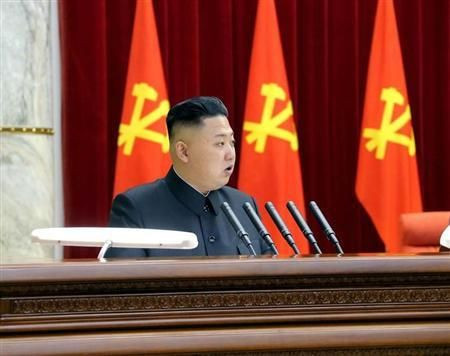North Korea’s Kim Jong Un Sends Envoy To China; Japan To Resume Talks With Pyongyang On Abduction Issue

North Korean leader Kim Jong Un sent a special envoy to Beijing on Wednesday, state media announced, a day after a Chinese fishing crew seized by North Koreans was freed after Chinese government intervention. The trip coincides with reports that Japan has planned to resume talks with North Korea.
Choe Ryong Hae, a top North Korean military official, left for Beijing, Korean Central News Agency reported, without giving any details about the purpose of the visit.
The visit comes as frustration grows in China, Pyongyang’s longstanding ally and largest trading partner, over the North Korean regime’s defiance in moving ahead with their nuclear and ballistic weapons program. Beijing had joined the U.N. Security Council in condemning North Korea’s Feb. 12 nuclear test that drew heavy international criticism.
Earlier this month, the state-controlled Bank of China ended all dealings with a key North Korean bank, a move that was seen as a strong diplomatic signal from Beijing toward North Korea.
In an editorial published on Tuesday, China’s Communist Party-owned People’s Daily subsidiary Global Times said China's relationship with North Korea should be "decisive."
“If North Korea continues to go rogue, China should take actions to push it toward a more measured response,” the editorial said. “If it is difficult to teach North Korea in words, we can make it understand in deeds.”
Earlier, China’s state-run news agency Xinhua reported that the 16-member crew of a fishing boat taken captive by unidentified North Koreans in the Yellow Sea on May 5 was safe and on their way back home on Monday.
The boat's owner Yu Xuejun had called the Chinese embassy for help on May 10. When the embassy received the call, officials asked the North Korean Foreign Ministry to help secure the release of the boat and the fishermen as soon as possible.
Earlier reports said that the captors demanded 600,000 yuan ($97,000) as ransom, but Yu told Reuters on Tuesday that the release was secured without paying any money.
Meanwhile, Japanese media reported that Prime Minister Shinzo Abe on May 21 began preparatory work to restart inter-governmental negotiations with North Korea to address such issues as Japanese abductions by North Korea and the regime’s nuclear and missile program.
Abe’s special adviser and close confidante,Isao Iijima, arrived in Pyongyang on May 14.
On Monday, Abe said all Japanese believed to have been abducted by North Korea must be sent back to resolve the longstanding issue, Asahi Shimbun reported.
Speaking about his aide’s visit to North Korea, Abe said there was a need to demonstrate “strong resolve” on the abduction issue.
“There is the possibility of other victims in addition to those who have been recognized,” Abe told a parliamentary audit committee session. “In referring to a resolution of the abduction issue, it will have to involve the return to Japan of all victims, including those believed abducted.”
In September 2002, North Korea admitted for the first time that it had abducted Japanese citizens in the 1970s and 1980s to train spies, and it apologized and promised to prevent any recurrence.
Tokyo has identified 17 Japanese citizens as victims of abduction by North Korea, of whom five returned to Japan in October 2002, for the first time in 24 years.
© Copyright IBTimes 2024. All rights reserved.






















